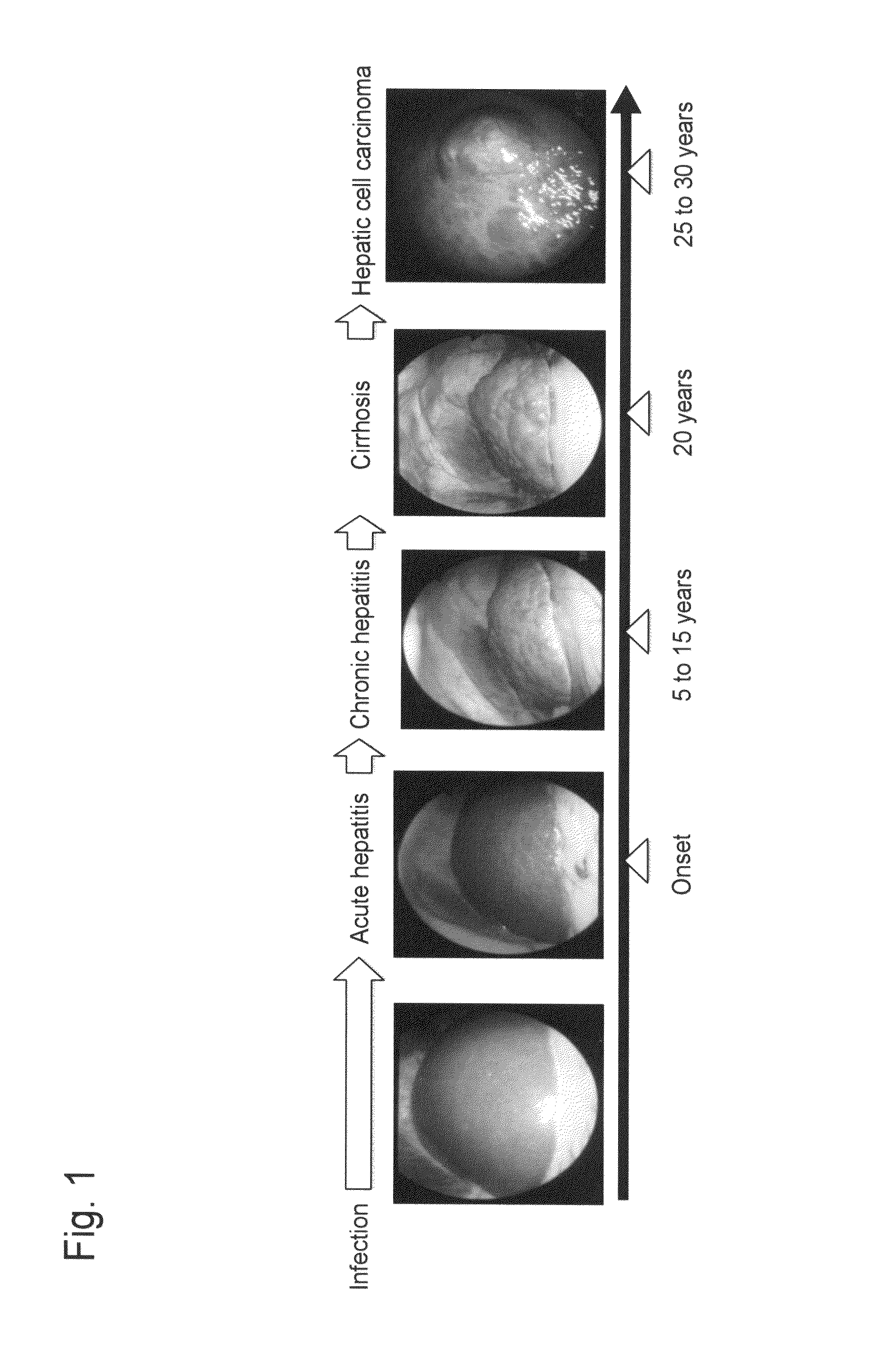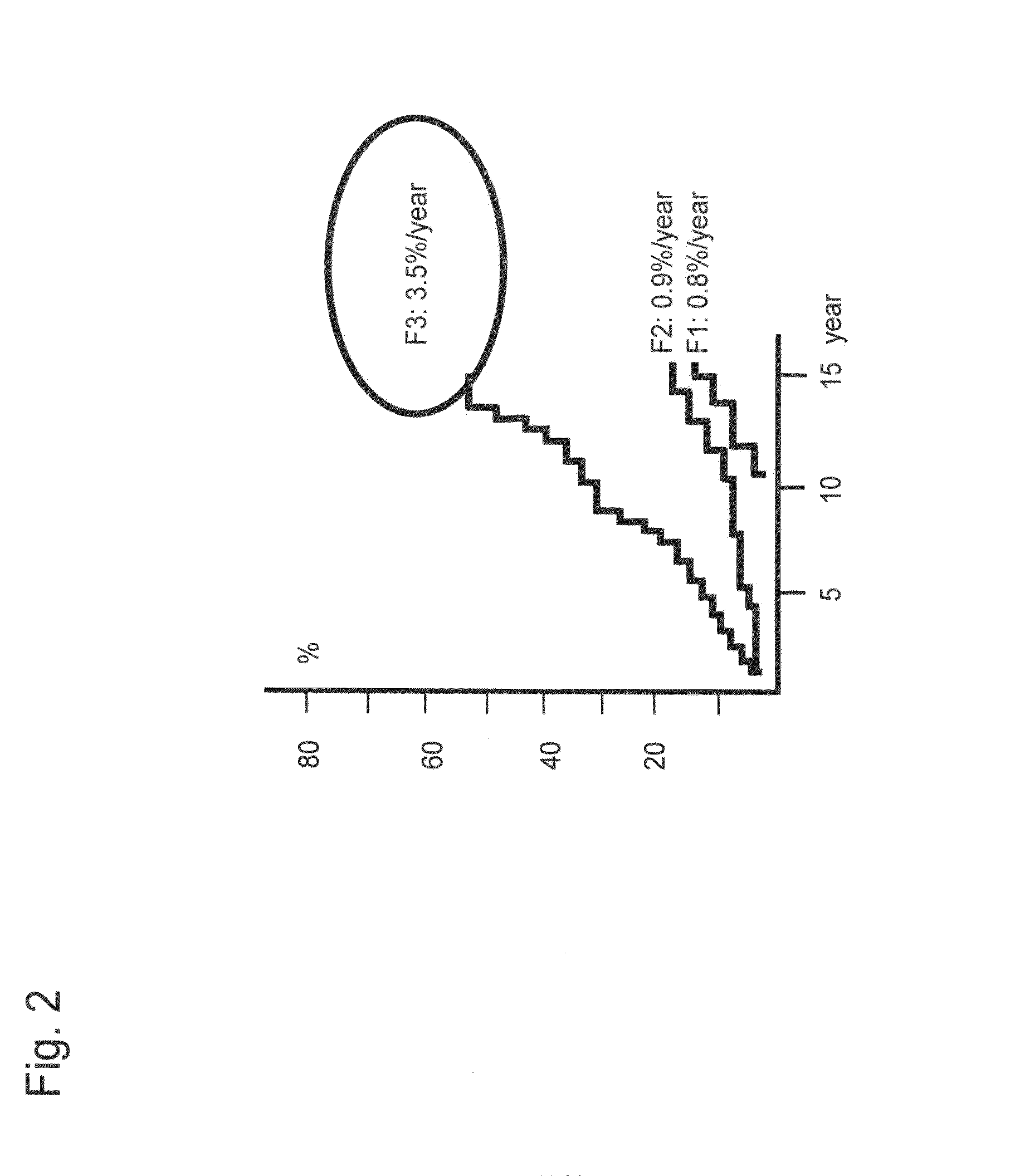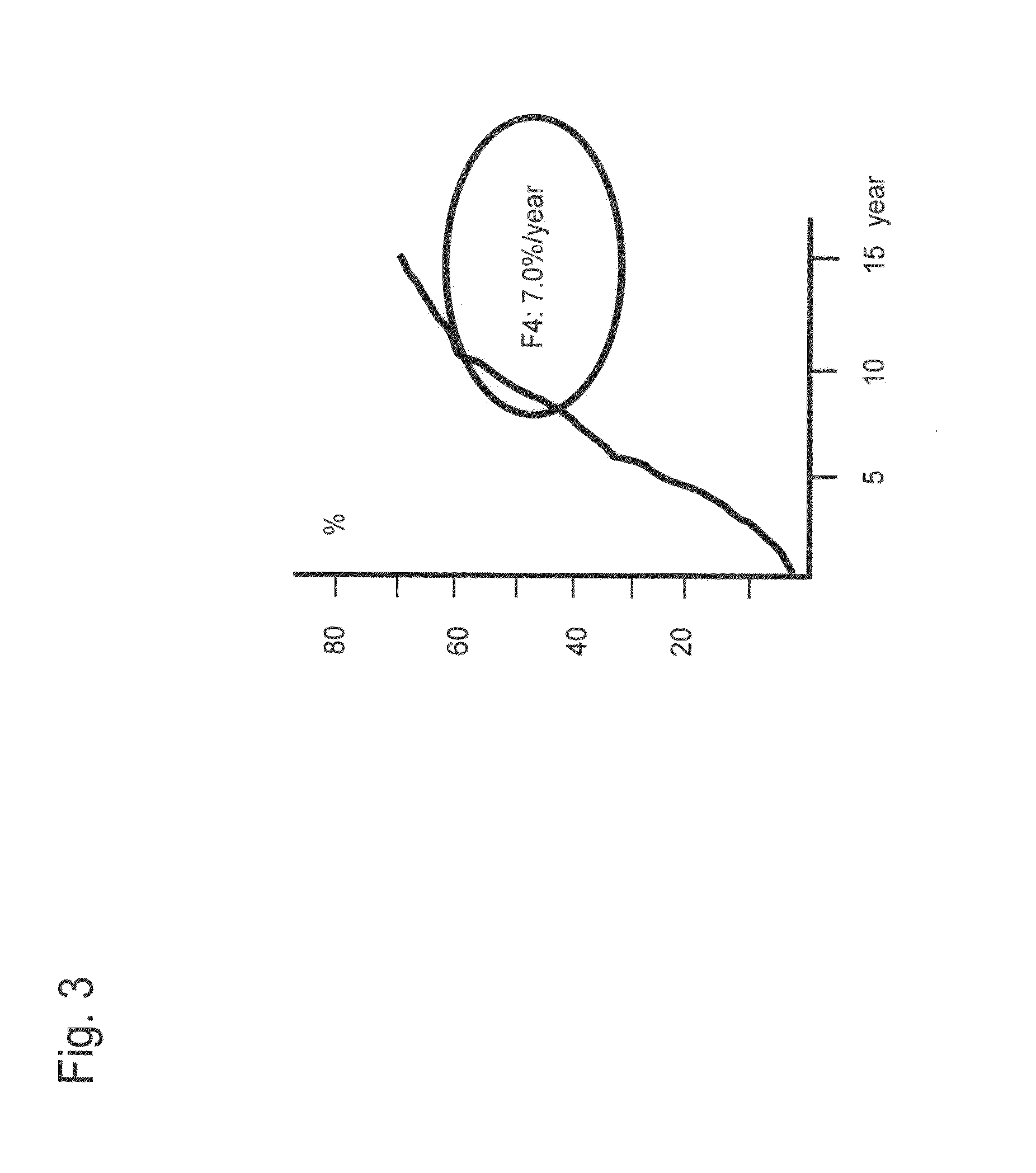Method for measuring glycoprotein, method for examining liver disease, reagent for quantitative determination of glycoprotein, and glycan-marker glycoprotein as an index for clinical conditions of liver disease
a technology of glycan-marker glycoprotein and quantitative determination, which is applied in the field of measuring glycoprotein, can solve the problems of unsatisfactory liver disease detection performance, insufficient specificity and sensitivity of the technique, and inability to accurately detect liver disease, etc., and achieves convenient measurement, high reliability, and high accuracy.
- Summary
- Abstract
- Description
- Claims
- Application Information
AI Technical Summary
Benefits of technology
Problems solved by technology
Method used
Image
Examples
example 1
Use of Glycan-marker Glycoproteins as Indices for Clinical Conditions of Liver Disease for Detection of Liver Disease
[0126]Liver disease was detected by antibody-overlay lectin array performed for glycan-marker glycoproteins as indices for clinical conditions of liver disease, AGP and Mac2BP (M2BP), as follows. In addition, FIG. 7 shows the procedures of this technique for differential analysis of sugar chains on the marker glycoproteins derived from the sera of (viral) hepatitis patients (CH), cirrhosis patients (LC),hepatic cell carcinoma patients (HCC), and healthy subjects (HV).
1. Enrichment of Marker Proteins from Serum
[0127]Enrichment of the marker glycoproteins derived from the sera of (viral) hepatitis patients (CH), cirrhosis patients (LC), hepatic cell carcinoma patients (HCC), and healthy subjects (HV) was performed according to “Kuno A, Kato Y, Matsuda A, Kaneko M K, Ito H, Amano K, Chiba Y, Narimatsu H, Hirabayashi J. Mol Cell Proteomics. 8, 99-108 (2009).” In addition,...
example 2
Identification of the Progress of Fiber Formation in the Liver by Antibody-overlay Lectin Array Analysis of AGP Glycan-marker Glycoprotein as an Index for Clinical Conditions of Liver Disease
[0130]As shown in Example 1, glycoproteins were chosen by statistical analysis from the lectin signal information obtained by the antibody-overlay lectin array analysis of glycoproteins. The use of the thus selected optimum glycoprotein leads to the possibility of detecting liver disease with each type of clinical condition.
[0131]Accordingly, an experiment was conducted with the following procedures using AGP as a target molecule.
1. Narrowing Down the Number of Lectins for Distinguishing Between Cirrhosis and Hepatitis
[0132]To narrow down the number of lectin groups exhibiting signal fluctuations with the progress of fiber formation, firstly antibody-overlay lectin array analysis was conducted for AGP using sera of clinically diagnosed HCC, LC, and CH patients (10 cases each). To perform more ob...
example 3
Detection of Cirrhosis by Antibody-overlay Lectin Array Analysis for AGP Glycan-marker Glycoprotein as an Index for Clinical Conditions of Liver Disease
[0139]It was considered based on the results of Example 2 that determination of a cut-off value of each lectin (signals) or a combination of lectin signals on the basis of the progress of fiber formation in the liver enables detection of cirrhosis. Hence, an experiment was conducted with the following procedures.
1. Determination of Lectin Signal—Cut-off Values for Detection of Cirrhosis
[0140]First, a cut-off value was determined for each lectin in order to detect a patient with cirrhosis from among patients infected by hepatitis virus. For this purpose, a receiver operating characteristic curve (ROC curve) for distinguishing F4 (cirrhosis) from the other stages (F1-F3) was created for 80 cases of pathologically diagnosed patients (F1, F2, F3, and F4 (20 cases each)) with the use of data obtained by normalization of 2 types of lectin ...
PUM
 Login to View More
Login to View More Abstract
Description
Claims
Application Information
 Login to View More
Login to View More - R&D
- Intellectual Property
- Life Sciences
- Materials
- Tech Scout
- Unparalleled Data Quality
- Higher Quality Content
- 60% Fewer Hallucinations
Browse by: Latest US Patents, China's latest patents, Technical Efficacy Thesaurus, Application Domain, Technology Topic, Popular Technical Reports.
© 2025 PatSnap. All rights reserved.Legal|Privacy policy|Modern Slavery Act Transparency Statement|Sitemap|About US| Contact US: help@patsnap.com



